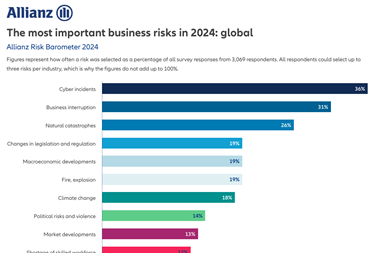A new balance will have to be struck between efficiency and resilience going forward, thought participants at our virtual roundtable
In January, over 20 risk managers based in Singapore and Malaysia and from a variety of different industry sectors, met virtually to discuss supply chain risk. In particular, the goal was to identify lessons learned from the COVID-crisis.
The sudden closure of China’s borders had a profound impact on global trade in early 2020, with three out of four businesses reporting that their supply chains had been adversely affected.
Not only has COVID-19 and resulting lockdowns revealed the fragility of modern supply chains, it has led to a fundamental rethink of globalisation.
There is an urgent need to design smarter, stronger and more diverse supply chains, according to the World Economic Forum.
Roundtable participants were in overwhelming agreement that going forward, a new balance would have to be struck between efficiency and resilience.
Lean manufacturing techniques, including just-in-time, now need to make way for ‘just-in-case’ approaches, building more slack and contingency into the process for when the worst happens.
Downloads
Special Report Supply Chains
PDF, Size 2.06 mb




















No comments yet